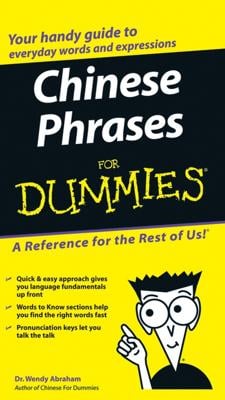Know how to ask for help in Chinese before you have an actual emergency. Save valuable time in a crisis by learning simple Chinese words and phrases to cover emergencies with illness or theft.
The simplest way to ask for assistance is jiùmìng! which means Help! You can also use the phrase qĭng bāngbāng wŏ! (Please help me!)
Legal assistance
Of course, you might need different kinds of help depending on the situation. For example, if you're experiencing a legal emergency of some kind, you want to ask for the police, which is jĭngchá in Chinese and pronounced jeeng chah.
The following phrases might also come in handy.
qĭng gĕi jĭngchá dă diànhuà. (Please call the police.)
lĭngshìguăn zài nălĭ/năr? (Where is the consulate?)
dàshĭguăn de diànhuà shì duōshăo? (What is the embassy’s phone number?)
tāmen ná le wŏde qián bāo. (They took my wallet.)
tāmen tōu le wŏde píbāo. (They stole my purse.)
wŏde xiàngjī zài fángjiānlĭ dīule. (My camera is missing from the room.)
Medical assistance
Most emergencies that happen in foreign countries are medical. The most efficient way to get the help you need is to know how to ask for the right kind of help and to be able to explain what's wrong.
The following Chinese vocabulary words can help you get to the right person.
To ask for a doctor say yīshēng (ee shung).
To ask for a hospital say yīyuàn (ee yawn).
To get medicine as for yàofáng (yaow fahng).
To ask for a nurse say hùshì (hoo shir).
In China, it's important to remember that most people just go to the hospital for medical care; there are few private practices doctors. Also, doctors don't usually tell people what they're doing or what's wrong. Their theory is that if they only tell the patients good news they won't worry as much.
In many hospitals, you receive medical care, and that’s it — you'll probably need friends or relatives to provide food, and even blankets, sheets, and towels in some cases.
qĭng bāngbāng wŏ! (Please help me!)
wŏ zhàngfu gāngcái yūndăo le. (My husband just fainted.)
tā gāngcái bèi chē zhuàng le. (He was just hit by a car.)
wŏ tóuyūn. (I’m dizzy!)
wŏ juéde wŏ wăi le jiăowàn. (I think I twisted my ankle.)
nĭ yŏu zhèzhŏng zhèngzhuàng duōcháng shíjiān le? (How long have you had these symptoms?)
nĭ xūyào zhào X guāng. (You’re going to need X-rays.)
wŏmen yào bă nĭ zhĕngyè liú zài zhèr/zhèlĭ. (We’re going to have to keep you here overnight.)
wŏ kĕyĭ liú xià péi tā ma? (May I stay with him?)
nĭ yŏu āsīpīlín ma? (Do you have any aspirin?)
wŏ xiăng mă tuìsháo yào. (I need something for a fever.)
wŏ shēnshang yŏu hóngdiăn, hĕnyăng. (I have an itchy rash.)
wŏ de zhàngfu lā dùzi. (My husband has diarrhea.)
wŏ de gănmào hĕn lìhai. (I have a terrible cold.)

